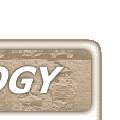|
An introduction and a historical perspective of the field of anthropology and related sciences
Introduction (chp. 1):
This section will introduce the basics of the science of anthropology and its major areas of emphasis.
We will take an interdisciplinary focus on the field in order to understand its various applications in the workplace.
The growth of the discipline and of evolutionary science (chp. 2):
Here we will discuss the contributions to anthropological sciences by various scholars and early thinkers,
and the way evolutionary thinking parted from theology to provide another explanation for life on earth and its diversity.
The field of genetics (chps. 3 and 4):
Understanding the way genes work is a primary component to understand how variation is essential in life and
how traits are passed on from one generation to another.
MIDTERM I (To Be Announced)
Study Guide for Midterm I
Understanding human evolution through our closest relatives in the primate world
Primate behavior (chps. 5 and 6):
What we normally think of as being a naturally human behavior is in fact a survival skill that we have inherited from our primate ancestry;
here we will take a look at some of this behavior.
Primate evolution (chp. 7):
Here we analyze the evolution of apes and monkeys to understand that they have also evolved from earlier forms.
An overview of the evolution of animals (chp. 8):
Humans, as members of the animal kingdom, are just but one of a long succession of life forms that have played a fundamental role in the evolutionary process,
which can be traced to the emergence of life on earth.
MIDTERM II (To Be Announced)
Study Guide for Midterm II
Human evolution
Paleoanthropology (chp. 9):
What is the evidence to support the theory of human evolution? We shall see some of these fossils and discuss their place origins.
Early hominids (chp. 10):
The "missing links," as austrolopithecines have been called, are in actuality a much later primate form that
achieved something very important which we call "culture."
Late hominids (chp. 11):
Our direct ancestors were not that much different from humans today, as we will see.
Humans in the modern world (chps. 12 and 13):
In closing, we will discuss some of the achievements of modern humans, which include the colonization of the continent of America.
Understanding the concept of "race" (chps. 14 and 15):
In order to have a clear and unbiased explanation of why anthropologists do not support the idea that human races exist,
we will take a look at the origins of such ideas and see how human populations share various characteristics across so-called "races."
Final Examination (Check the Final Exam Schedule)
Study Guide for Final Exam
|


